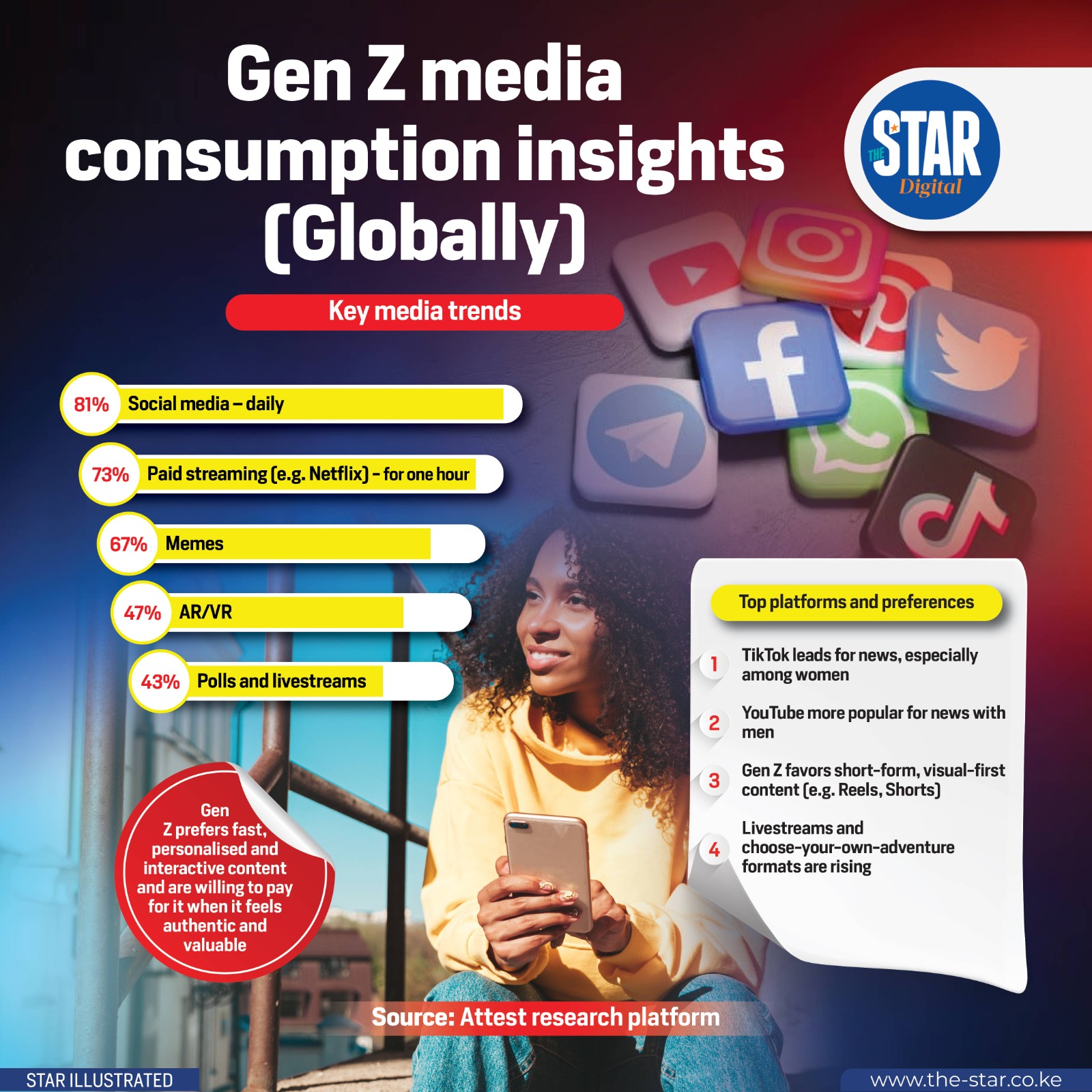
How Gen Z protests are affecting Kenyans
Personal effects on Kenyans during the June 25 protests
Unlike their predecessors who primarily relied on traditional TV and print, Gen Z prefers digital-first platforms, especially mobile.
In Summary

Audio By Vocalize

Generation Z, broadly defined as those born between 1997 and 2012, consumes media differently from previous generations.
Unlike their predecessors who primarily relied on traditional TV and print, Gen Z prefers digital-first platforms, especially mobile.
They are more likely to stream content on platforms like YouTube, TikTok, and Netflix than to watch scheduled programming on television.
Short-form videos, typically under a minute, dominate their attention spans and shape how content is created, shared, and consumed.
Social media plays a central role in Gen Z’s media consumption.
Platforms like TikTok, Instagram, Snapchat, and increasingly X (formerly Twitter) are not just spaces for socializing but key sources of news, trends, and entertainment.
Gen Z relies on influencers and peer content over institutional sources, valuing authenticity and relatability over polished branding.

Personal effects on Kenyans during the June 25 protests